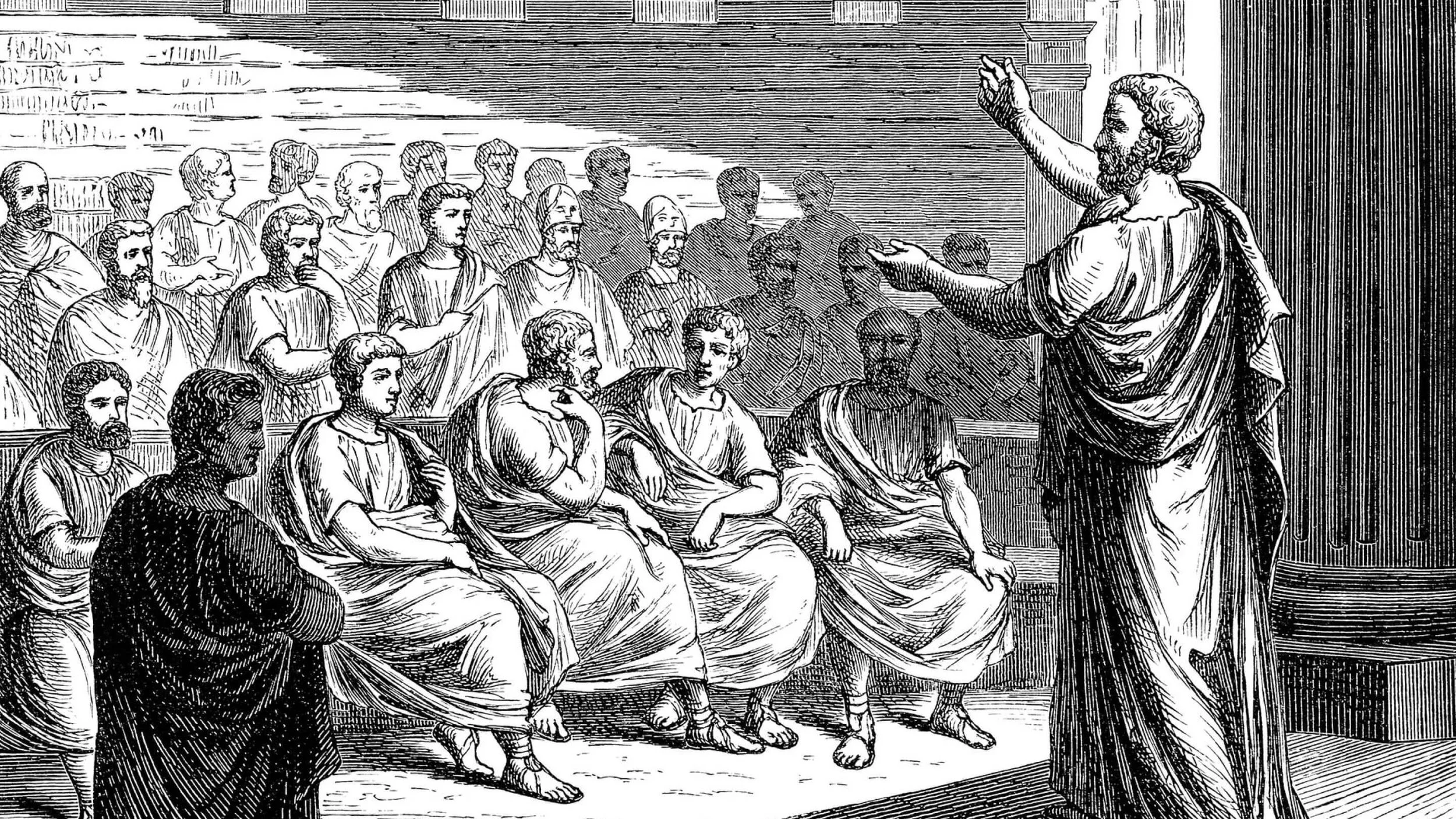Being filled with all unrighteousness, fornication, wickedness, covetousness, maliciousness; full of envy, murder, debate, deceit, malignity; whisperers,
Romans 1:29
Like other Ancient Greek philosophers, Socrates used formal debates as a means of indoctrinating his disciples. Seeing that Western intellectual tradition traces back to the Ancient Greeks, this culture of debate has deeply influenced the way Western minds interact. In our society, debating is both taught and encouraged. This can be witnessed in everything from primary school competitions to parliamentary proceedings. In fact, debate is viewed by the world as a civil means of hashing things out, but this is merely a facade.
In his 1828 dictionary, Noah Webster stated that the man engaged in debate is ‘endeavoring to prove his own opinion right, and that of his opposer wrong’. The stage combat of politicians (who are among the most prominent of all debaters) demonstrates that debating is not about proving what is right or true, but promoting the party line. When this worldly wisdom is carried into the interpretation of God's word, it becomes a source of great evil.
Formal debates on religious matters are becoming increasingly popular on social media. Yet those engaged in such debates often handle the sword of the Spirit as though it were a fencing foil. In this vain struggle for mastery, the reason for Bible study – arriving at truth – is lost sight of. As the apostate cunningly evades solid Biblical arguments, the ring of debate serves to bind him more securely in his errors. Spectators, too, are affected. Easily taken by a partisan spirit, they are bamboozled by the fair speeches of those in error.
Given its inherently contentious nature, debate is listed in Roman 1:29 as one of the sins which called judgment down upon the antediluvians. The Greek word ‘eris’ that Paul employs for debate is translated as ‘variance’ in Galatians 5:2. Here, it is plainly listed as one of ‘the works of the flesh’. In the Bible, this Greek word is only ever employed in a negative sense. Indeed, the New Testament condemns debating. However, Paul is recorded to have been ‘disputing’ in a synagogue in Ephesus. While ‘debating’ and ‘disputing’ may appear to be an issue of semantics in modern terms, the context reveals that there is a difference between these two words as they appear in the King James Bible:
And he went into the synagogue, and spake boldly for the space of three months, disputing and persuading the things concerning the kingdom of God. Acts 19:8
In this verse, the Greek word for ‘disputing’ is ‘dialegomai’, from which we get the word ‘dialogue’. In other passages, ‘dialegomai’ is translated as ‘reasoned’. So long as the brethren at this synagogue were open to truth, Paul continued with them. But eventually, certain men (most likely the Jewish elders) became hardened according to the following verse:
But when divers were hardened, and believed not, but spake evil of that way before the multitude, he departed from them, and separated the disciples, disputing daily in the school of one Tyrannus. Acts 19:9
True to his rebuke of sinful contention, Paul did not hang around to debate with the unbelieving. When they made their rejection clear by speaking evil of the truth, Paul saw that there was no use continuing with them. Departing from their company, he separated to himself the disciples he had acquired. Paul then continued ‘disputing’, or reasoning, with those separated ones in the school of Tyrannus.
The world we live in is becoming more and more polarised through daily debates occurring on social media. For the sake of those being deceived, it is sometimes appropriate to speak a fitly spoken word. Yet with the above example in mind, and the knowledge that debating is sinful, the Christian would do well to recall the words of the wise man before writing his response:
It is an honour for a man to cease from strife: but every fool will be meddling. Proverbs 20:3
Christopher Sparks

